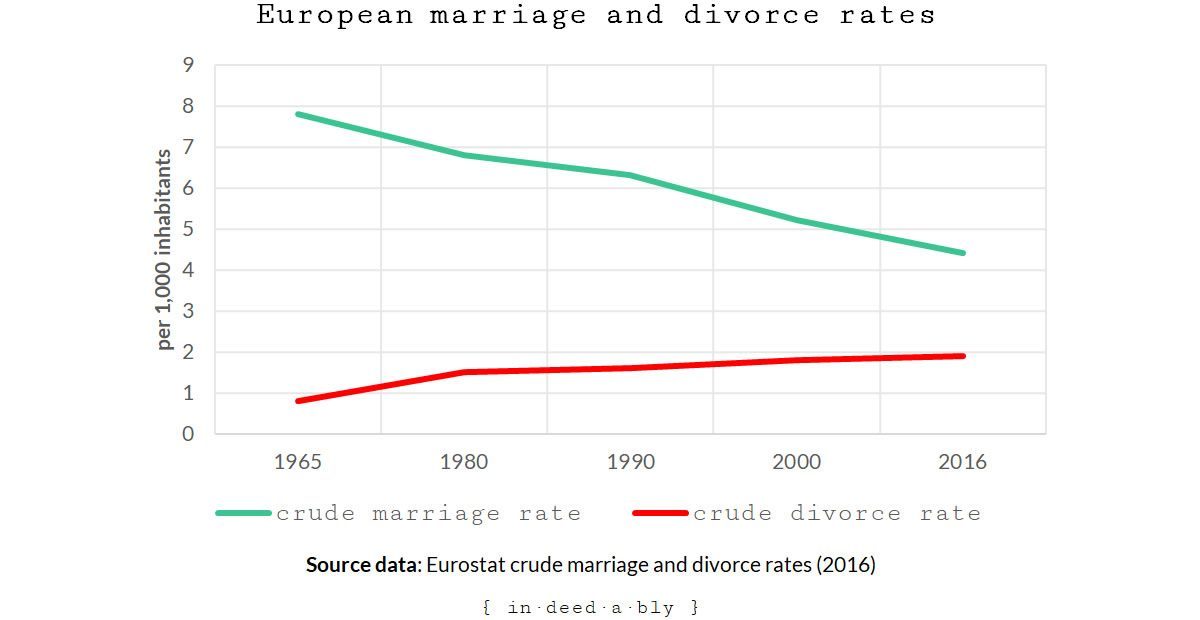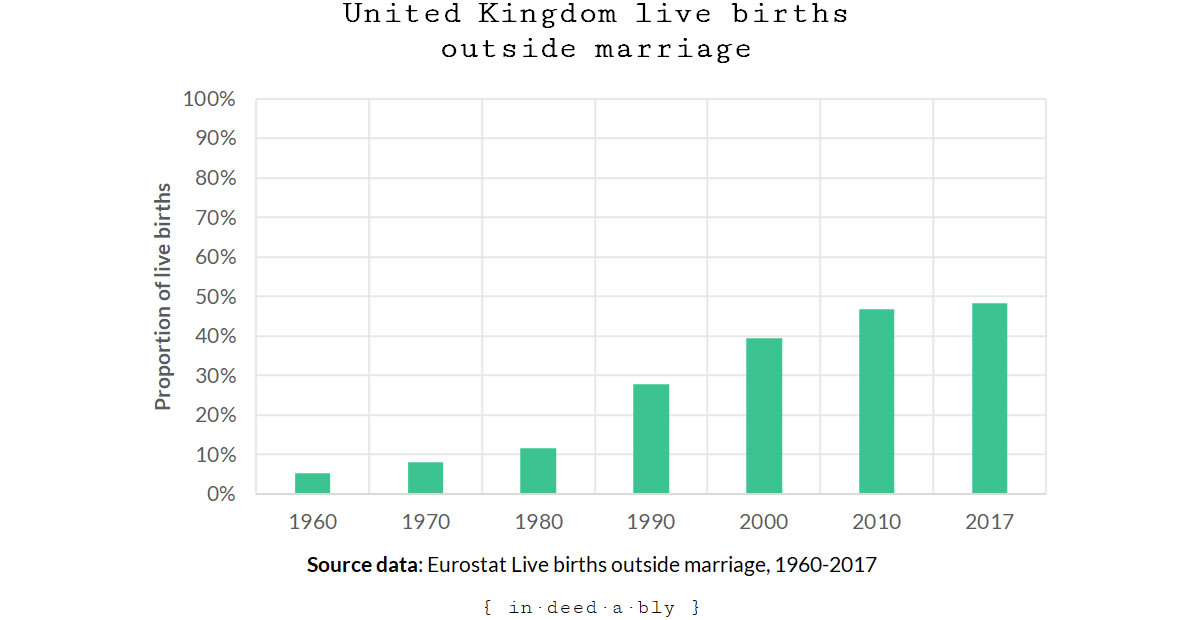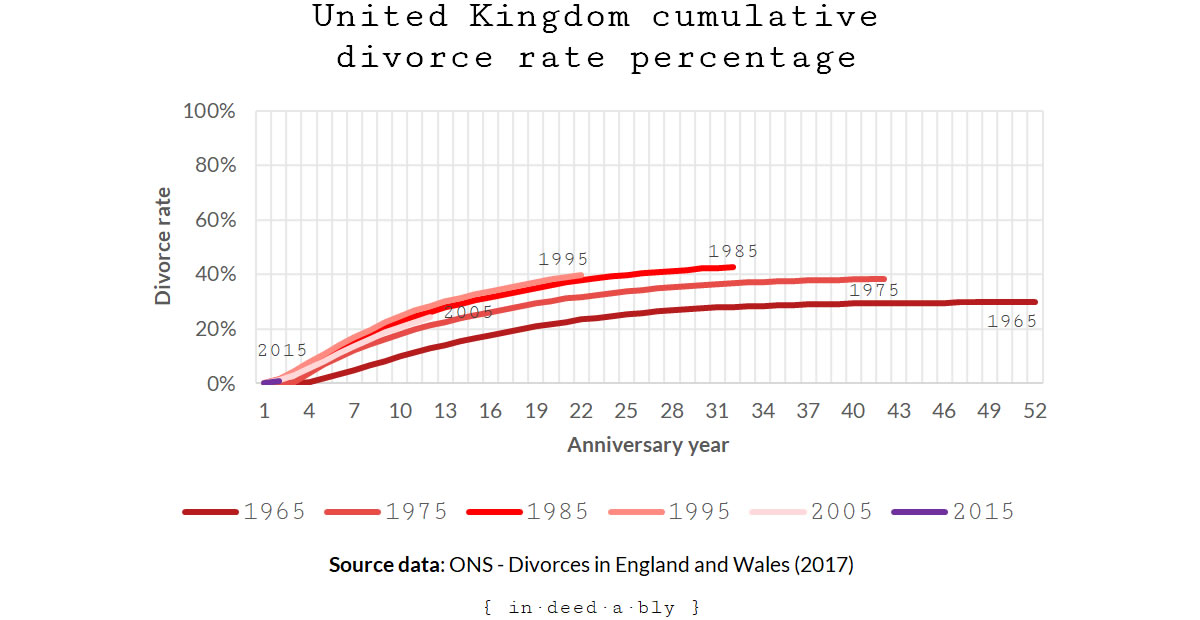“Will you love him, comfort him, honour, and keep him in sickness and in health, and forsaking all others, be faithful to him as long as you both shall live?“
I was half listening to whatever movie the kids had on. A gravelly voice boomed from the television, delivering this age-old question in the form of a challenge.
Out of nowhere my inner saboteur suddenly spoke up, shouting:
“Don’t do it, it’s a trap!”
That surprised me. I hadn’t been paying attention to the plot, but judging from the menacing tone and background music I suspect the speaker was a bad guy.
Using a mental trick that has saved my long-married hide on countless occasions, I mentally replayed the last couple of minutes of dialogue I had heard but not paid attention to.
Definitely a bad guy.
However, that didn’t explain the reaction. My inner saboteur didn’t care about some cartoon. Could it have been referring to the concept of marriage?
That seemed more likely.
I thought about that for a moment.
An institution of increasing irrelevance?
According to Eurostat figures, the concept of marriage has been steadily losing popularity.
Over the last 50 years, the European marriage rate has almost halved.
During the same period, the divorce rate in Europe has more than doubled. The main cause has been the legalisation of divorce in several countries, rather than a sudden epidemic of bad marriages.

In the United Kingdom 48% of children are now born to unmarried parents. That percentage increases to over 50% in France and Scandinavia.

Marriage appears to make most folks who venture into happy. At first.
Over time people adapt, change, evolve, and grow.
Sometimes together.
Often apart.
In England and Wales, 42% of marriages end in divorce. The chart below shows the divorce rate by anniversary year for a selection of cohorts who were married in a given calendar year.

Intuitively the failure rate for relationships in general would be much higher than this. After all, very few of us marry our very first boyfriend or girlfriend.
Doing so would be a risky proposition, potentially establishing a baseline for what is normal or acceptable in a very disturbing place. We are encouraged to thoroughly research and shop around for the best deal on all our major life decisions, ranging from purchasing a house to accepting a job offer.
Marriage should be no different.
Marriage of ultimate doom
I had been reviewing a contract for a prospective client engagement while the kids were watching the movie.
A potentially lucrative, yet demonstrably indecisive, client was seeking to outsource accountability for meeting deadlines while retaining all the control over resourcing allocation. Hardly the recipe for a successful project!
My distracted brain applied the same contract reviewing lens to those marriage vows.
“… love him, comfort him, honour, and keep him …”
Under the terms of the agreement, you will perform the duties as specified in the statement of work.
Similar to a group project at school, you are obligated to carry the other party if they are unwilling or unable to support themselves.
If you fail to do so, the other party can take you to court, and force the issue. This was the original form of early retirement!
“… in sickness and in health …”
The contract is binding, irrespective of the changing delivery, financial or reputational circumstances of either party.
Failure to comply will represent a breach, for which damages may be sought.
“… and forsaking all others …”
The contract contains a no-compete clause. Supply of goods or services to any other party is prohibited, regardless of how advantageous or profitable the commercial terms may happen to be.
“… be faithful to him …”
Any work product or intellectual property produced while the contract is in place automatically becomes jointly shared property.
Each party is potentially exposed to unlimited liability for the debts, obligations, or reputational harm incurred by the other party.
In the event the other party declares bankruptcy, you could lose your home or be made to pay for their half of assets that you already access and enjoy.
“… as long as you both shall live …”
The contract is binding in perpetuity.
There is no break clause, escape route, or notice period.
No hope of offshoring, outsourcing, subcontracting, or substituting who will fulfil the obligations.
There is nothing in the contract regarding remuneration terms or payment schedules.
Nor does it contain any details about:
- working hours and conditions
- arbitration and dispute resolution
- events that would render the contract null and void
- the process for renegotiation.
Parties would need to go to court to obtain a ruling to exit the contract. If successful, the other party may receive a golden parachute of ongoing support for up to a further five years.
If those marriage vows were offered as a business contract, then no competently prudent and suitably qualified decision maker would ever in good conscience enter into it!
The unlimited liability alone makes it a non-starter.
Even those most famous of unlimited liability contracts, the “Names” at Lloyd’s of London, are no more because they represented the unreasonable level of risk.
The fact that English courts don’t view pre-nuptial agreements as binding should also give pause to loved up couples planning a trip down the aisle.
Managing expectations
One of the key parts of any successful client engagement is the realistic management of expectations.

Unicorn. Image credit: Bro666.
A client who is expecting flying unicorns that excrete rainbows is destined for disappointment.
There is a great deal of wisdom behind the cliché of “under promise and over deliver”.
Unrealistic expectations often lead firms to overpromise just to win the job, leaving them with only bad choices when it comes to delivery.
Deliver late.
Underdeliver.
Deliver at a loss.
Or attempt to renegotiate from a position of weakness.
In my experience, it is better to be realistic and honest. Say what you’ll do. Then do what you’ve said.
No more.
Never less.
Most clients respect this, the approach leading to repeat business. Those who didn’t were invariably more trouble than they were worth, no matter how lucrative the project happened to be.
The only certainty in this onerous contract was that I would get screwed. My inner saboteur piped up again with the wry observation that once married even that outcome was far from certain. Bastard!
Seeking some redeeming features, I wracked my brains for commonly cited benefits of getting hitched.
- Sex on tap? Good luck with that.
- A sympathetic ear? Your mileage may vary.
- Companionship? Past performance is no guarantee of future results.
- Unconditional support? Beautiful and exotic, but rarely seen in the wild.
- Longer life? A myth created by sampling bias and statistical sleight of hand.
All of these things are possible. Yet none are guaranteed.
At times they may be available. At others withheld or withdrawn.
Like anything involving human interaction, unpredictability is ever present and seldom rational.
When I cast my eye over that list, there wasn’t anything that couldn’t be provided by an unmarried partner, or even a “friend with benefits”.
With the exception of sex, those benefits can all be reliably found in a close friend.
Or a dog.
Was this why Europeans were turning their back on the idea of marriage in ever increasing numbers? Relationship statuses outside of traditional marriage gaining ever-increasing legal equivalence, without the unlimited liability and hefty divorce bill when the relationship runs out of steam?
Marrying for the money
Marrying for money was historically one of the few ways for a “have not” or a social climber to elevate themselves into the lofty ranks of the “haves”. Inequitable and unjust, much like the English public school system, it reflected the harsh realities of the world they lived in.
Whether we realise it or not, many of us practice this method of advancement today.
By availing ourselves of the financial benefits offered to married couples, we enjoy advantages inaccessible to those who have not tied the knot. Cultural traditions encouraged, incentivised, and reinforced via tax inducements and legal protections.
These don’t come from the marriage contract itself, but rather the legal framework society has established around the institution of marriage.
The list below is not exhaustive, but it highlights how the rules are skewed in favour of the married.
- If a married spouse dies without a will, the surviving spouse generally inherits their estate.
- Assets can be transferred free of capital gains tax between married couples.
- Married couples can shield up to £1,000,000 in assets from inheritance tax.
- Gifts between married partners are exempt from the retrospective clawback, should the giver have the inconvenient timing to die within seven years of making the gift.
- Married couples are automatically considered next of kin, entitled to make decisions about medical treatments such as “do not resuscitate” decisions when their partner is unable to.
- Surviving married spouses can generally benefit from their partner’s pension.
By contrast, when an unmarried person dies without a will it is their next of kin, rather than their surviving partner, who generally inherits their estate. The surviving partner can potentially receive nothing at all, and be rendered homeless at the whim of that next of kin.
Unmarried partners are not automatically recognised as next of kin for the purposes of medical decisions. Nor do they automatically enjoy the benefits of a deceased partner’s pension. Some pension funds have rules stating unmarried partners are ineligible to receive pension benefits.
As ever, when it comes to taxes and law, nothing is ever definitive or straight forward. In every example described above there is nuance and subjectivity, so seek expert guidance before making any commitments that will significantly impact your own life and those who are close to you.
A different way of looking at things
Long ago I watched a Hindu wedding.
At the time I was juggling three jobs around a full-time university course load. One of those jobs was performing hospitality duties at a large licensed club that housed several bars and restaurants. Think a small Grecian themed Las Vegas casino, with plenty of slot machines but no table games.
As far as weddings go, it seemed more like a festival than any I had previously encountered. Hundreds of guests attending wedding-related events over the course of several days.
The bride’s family had deep pockets, but short arms. They had opted to do the reception catering themselves but had no experience serving hundreds of guests. This meant much of the food was cold, oily, and unappetising by the time the waiting staff brought it to the tables.
The most memorable part of the wedding was when some guests actually ordered dial-a-pizza deliveries to their table, during the reception!
Earlier in the day, I had snuck into the back of the ceremony to watch the happy couple get married.
The ceremony concluded with the bride and groom holding hands and circling around a fire.
With each step, they said something to each other.
My Hindi language skills were limited to some animal husbandry insults roared by the combustive sous-chef whenever one of us dropped a plate or messed up an order. I asked the lady standing next to me what the couple was saying.
She tilted her head to the side and listened for a moment, then translated:
“They are making the seven promises. Roughly speaking they are committing to:
- look after each other
- grow healthier, smarter and stronger
- enjoy wealth and prosperity
- seek happiness and contentment
- have kids
- lead long lives without compromising their values
- remain friends and companions throughout
Basically to treat each other fairly and work as a team.”
I thought about that for a minute.
It sounded like a good arrangement, promises they actually stood a reasonable chance of keeping as opposed to the well-intentioned but thoroughly unrealistic “love, honour and obey for as long as we both shall live” vows that most of the marriages conducted at the club contained.
“And do they?” I asked. “Treat each other fairly, and work well as a team?”
She shrugged. “Nobody knows. This is an arranged marriage. The bride and groom only met for the first time two days ago”.
I goldfished.
Perhaps not such a good arrangement after all.
With such a beginning, holding realistic expectations rather than the promise of fairy tales would be even more important.
Committing to an onerous lifetime contract, with only two days to perform due diligence, sounded like a recipe for a marriage of ultimate doom. No matter how good the tax breaks may be!
References
- Citizens Advice (2019), ‘Liability for joint debts if your partner is bankrupt‘
- Citizens Advice (2019), ‘Living together and marriage: legal differences‘
- DePaulo, B. (2009), ‘No, Getting Married Does Not Make You Live Longer’, Psychology Today
- Murray, W. (1783), ‘Gregson v Gilbert [1783] 3 Douglas 232: 99 E.R. 62‘
- Cumbo, J. (2018), ‘Pension inheritance hopes for 3m unmarried couples’, Financial Times
- Dunkley, J. (2009), ‘Lloyd’s Names face bankruptcy as court battle ends’, The Telegraph
- Emotion Weddings (2018), ‘The 7 steps (or blessings) in a Hindu wedding ceremony‘
- Eurostat (2018), ‘Marriage and divorce statistics‘
- Fairburn, C. (2017), ‘Briefing paper number 03752: Pre-nuptial agreements’, House of Commons Library
- Griffin, R. and Inman, P. (2000), ‘How the Names lost their shirts’, The Guardian
- Lee, R. C. (2016), ‘In what year did women cease to be considered private property of their husbands in England?’, Quora
- Legislation.gov (1882), ‘Married Women’s Property Act 1882‘
- Lewis, M. (2018), ‘Martin Lewis: Is there any point in being married?, Money Saving Expert
- Lin and JIrsa (2018), ‘Saptapadi – seven steps‘
- Lloyd’s (2016), ‘Membership Overview‘
- O’Neil, M. (2018), ‘The financial pros and cons of marriage’, Moneywise
- Office of National Statistics (2018), ‘Divorces in England and Wales: 2017‘
- The Economist (2019), ‘The Bezos divorce settlement is the biggest in history‘
- The Money Advice Service (2019), ‘Clean break or spousal maintenance after divorce or dissolution‘
- Williams, O. (2018), ‘Why being a member of Lloyd’s of London is still a risky business’, The Spectator



[HCF] 17 June 2019
It is true that looking at marriage from the perspective of law or finances it is a horrible option. The level of risk is just too damn hight. The potential sacrifice and responsibility is huge. Still, the moment you tie the knot you are just wowing that you are connecting your lives together forever on. Isn’t this kind of an expression of the deepest kind of trust?
Your contract example is pretty accurate however I would like to think about it more like in terms of long term dividend investing. Our marriage is a solid company (lets say a dividend champion) which sells stocks only for the two of us (ok, maybe for the descendants also). We invest into this company continuously and while we, the shareholders can manage it to operate and bloom we reap the dividends (ideally) forever. Am I too optimistic? 🙂
{in·deed·a·bly} 17 June 2019 — Post author
Thanks HCF.
You propose a very interesting analogy.
Like companies some marriages really can be “unicorns”, soaring to stratospheric heights.
Others start to stagnate, get disrupted, rendered technically or structurally redundant, or even suffer a hostile takeover from demanding offspring or attractive competitors.
More often they grow rapidly in the beginning, mature and plateau, then run the risk of complacent senior management gradually weakening them through benign neglect or short termism.
A precious few get the unchanging principles right early on, and remain small and strong. Delivering value and wealth to the shareholders while having the strong enough foundations required to weather the inevitable storms.
weenie 18 June 2019
I believe in marriage although we’ve had a fair share of both happy and unhappy ones in our family.
I just don’t think marriage is for me and in fact, I’m heartened to read reports that unmarried, childless women are the happiest subgroup in the population – I could have verified that!
My folks have been married for over 50 years and as far as I know and have seen, it continues to be a happy one. They didn’t have an arranged marriage (which was common back then in their culture) but my dad was formally “introduced” to various young ladies to be their suitor, one of which was my mum. Both had a choice in the matter at least, unlike the Hindu couple you mentioned.
My dad said he chose my mum because he wanted someone to be his ‘partner in marriage and business’ (or similar words). When he wants to annoy her, he claims that he should have gone for the pretty one, haha! 🙂
{in·deed·a·bly} 18 June 2019 — Post author
Thanks weenie, I’m pleased to hear your parents have enjoyed a long happy life together.
I think the idea of people pairing off and looking forward to a life together is an admirable one. It requires an idealistic mix of hope, faith and optimism about what the future will hold. These traits are all in short supply in many other aspects of life, so it is heartening to see folks suspend disbelief.
My problem is with the legal side of marriage, or more specifically the advantages that married folks enjoy that others do not. Also the vast often financial costs associated with marriages that don’t work out.
My parents lived next to an unmarried couple for more than a decade. The guy owned the house, and it was pretty obvious he would have wanted his partner to have it should she outlive him. Unfortunately he died unexpectedly, without a will, and his kids kicked her out. They sold off the house, and she inherited nothing from the estate.
Our neighbours when I was a kid were a lesbian couple. They had lived together for decades, much to the disapproval of their respective families. One of them suffered a medical emergency that left them incapacitated. Her unmarried lifelong partner had no legal standing to make medical decisions on her behalf, and her legal next of kin refused to let them see each other again. It was a tragic end to what had always appeared to me to be a very happy relationship.
I think that individuals should be able to confer as many, or as few, of the legal rights and financial benefits associated with marriage today to whomever they choose.